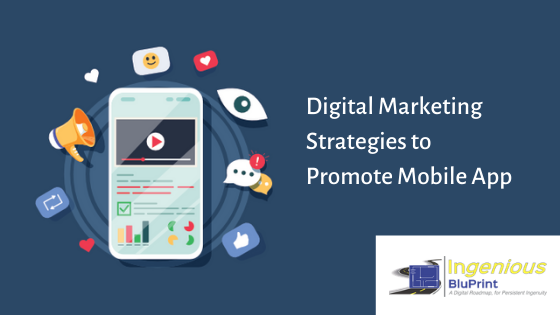With over four million apps available for download from the world’s biggest app stores, businesses understand that a careful marketing plan is the only way to stand out in today’s app industry. While focusing on mobile app development and building an app that functions properly is a central factor for success, if users don’t know the product exists, your hard work is worthless.
Defining a target audience, knowing how to reach them, communicating with them, and evaluating their in-app activity to make continual changes as users progress through the acquisition funnel are all part of effective mobile app marketing. Finally, the goal of a mobile app marketing plan should aim to attract consumers who would not only engage with the product again but also become loyal supporters.
Here are five proven digital marketing strategies for mobile app promotion:
- Leverage Machine Learning:
Machine learning technology can help improve the mobile app marketing process by simplifying data, unlocking valuable user insights, and engaging users in a more engaging way. In any case, remember that machine learning is only as good as the data you feed it.
- Proper Onboarding:
We all know that creating an interesting and dynamic user experience is critical to the success of any software. Actually, applications that execute a proper user onboarding strategy witness an increase of 61% in users which is 11 times more, contrasted with 41% for applications without appropriate onboarding. This implies that a poor onboarding process increases the chances of app abandonment.
- Conduct Market Research To Understand Your Customers:
One of the most common pre-launch errors is failing to conduct adequate market research. You must first identify the key customers in your app category before you begin any development work. No matter how effective your marketing efforts are, if your app doesn’t solve a consumer pain-point or answers a pain-point for which there is already a successful app solution, your product will fail.
- Conduct A Competitive Analysis:
There will be competition for your app. Make a list of your top five competitors, including their current price, revenue plan, app store position, user experience (UX) advantages, and disadvantages, and notable reviews. Consider what makes your app unique in comparison to the competition. These are crucial factors to consider while developing an app marketing strategy.
- Promote On Social:
Facebook, Instagram, Twitter, LinkedIn, Pinterest, and other social media sites allow you to grow your online presence and engage directly with your target audience. If your app is aimed towards a specific age group, determine which social media channels are most popular among this population and concentrate your efforts there. Post and share not only promotional but entertaining and engaging content related to your app in order to build a community behind it.
The mobile app development industry continues to grow in a number of ways. As the world moves toward mobile, mobile applications present a big potential for businesses to truly engage their customers. At Ingenious Bluprint we understand the significance of executing enterprise mobile apps as a piece of corporate strategy. We help organizations to develop native cross-platform applications for their business. Contact our team to know more about our services.

